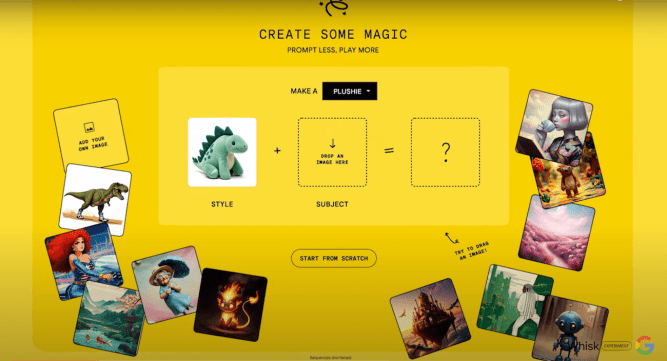What is Procedural Content Generation (PCG)?
In the ever-expanding universe of video games, designers are constantly seeking ways to create engaging and immersive experiences for players. One technique they use to achieve this is Procedural Content Generation (PCG). Simply put, PCG is an automated way of creating game elements like levels, characters, and objects using algorithms and mathematical models, rather than relying on manual, handcrafted design.
Traditional PCG Techniques
PCG has been used in various forms to enhance game experiences, making them more dynamic, unpredictable, and unique. Traditional PCG techniques include search-based methods, which involve exploring a vast space of possible game content, and machine learning-based approaches, where AI models learn to generate content by analyzing existing examples.
Introducing Knowledge Transformation in PCG
Now, let’s explore the new approach: Procedural Content Generation via Knowledge Transformation (PCG-KT). This innovative method goes beyond the traditional PCG techniques by focusing on transforming knowledge from one domain to another, opening up a whole new realm of possibilities in game design.
The Power of PCG-KT
Imagine a game where the levels, characters, and gameplay elements are not just randomly generated, but instead, are crafted by combining knowledge from various game genres or even entirely different domains. This is the power of PCG-KT.
Examples of Blended Game Levels
- Super Mario Bros.: A classic platformer with iconic music and colorful graphics.
- Kid Icarus: An action-adventure game with a focus on exploration and puzzle-solving.
- Mega Man: A side-scrolling shooter with challenging enemies and tight controls.
By combining the knowledge from these different domains, PCG-KT can generate entirely new game worlds that blend genres, creating unique and engaging experiences for players.
The Potential of PCG-KT
PCG-KT has the potential to revolutionize the way we create and experience video games. By transforming knowledge between domains, designers can generate entirely new game worlds that blend genres, creating unique and engaging experiences for players.
- Blend Genres: Combine the mechanics of a classic platformer game like Mario with the lock-and-key progression of an adventure game like Zelda, resulting in a brand-new metroidvania gaming experience.
- Unlock New Possibilities: Imagine combining the exploration-based gameplay of Minecraft with the puzzle-solving elements of Portal 2, creating a new genre that combines the best of both worlds.
The Future of PCG-KT: Innovative Research Directions
In their research paper, the authors emphasize the potential of PCG-KT in revolutionizing the way games are created and experienced. They outline several exciting research directions that could further enrich the field of PCG-KT:
- Better Evaluation Techniques: Develop more robust and informative evaluation methods to assess the quality and effectiveness of knowledge transformation in the generative process.
- Multi-Genre Approach: Extend PCG-KT methods to incorporate multiple game genres, opening up opportunities for generating novel gameplay experiences that could lead to entirely new game genres.
- Hybrid Approaches: Combine various models and techniques in the knowledge transformation process, discovering new ways of extracting and transforming knowledge.
Challenges and Future Directions
As with any new technology, there are challenges to overcome and areas for future research:
- Better Evaluation Techniques: Develop better evaluation techniques for assessing the quality of generated content.
- Multi-Genre Approach: Extend the approach to multiple game genres.
- User-Friendly Design Tools: Create user-friendly design tools that allow even non-experts to harness the power of PCG-KT.
However, as researchers continue to push the boundaries of PCG-KT, we can expect to see a new wave of innovative and exciting gaming experiences emerge.
Conclusion
Procedural Content Generation via Knowledge Transformation (PCG-KT) is a groundbreaking approach in the world of video game design. By transforming knowledge between domains, designers can generate entirely new game worlds that blend genres, creating unique and engaging experiences for players. With its potential to revolutionize the gaming industry, PCG-KT is an exciting field that holds much promise for both developers and players alike.
References:
- Anurag Sarkar, Matthew Guzdial, Sam Snodgrass, Adam Summerville, Tiago Machado, Gillian Smith. (2023). Procedural Content Generation via Knowledge Transformation.
- https://arxiv.org/abs/2305.00644


